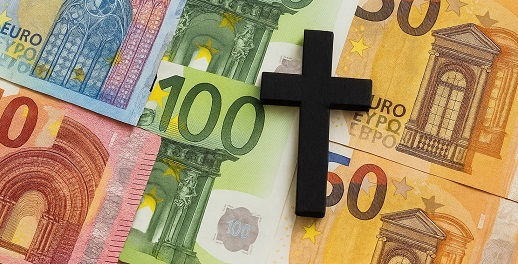
For many newcomers and even lifelong residents, the church tax in Germany is one of the most surprising parts of everyday life. Known as Kirchensteuer, it is a surcharge on the income tax of registered members of the Catholic Church and the Protestant Church in Germany. In a country where weekly church attendance is modest and secular identities are widespread, why does this system endure, who pays it, and what exactly does it fund? This definitive guide explains how church tax in Germany works – from legal origins and rates to resigning, exceptions, controversies, and the cultural reasons many Germans still choose to pay.
Table of Contents
- Church tax in Germany – what it is and why it exists
- How Kirchensteuer works – eligibility, rates, and collection
- Who pays the church tax in Germany and who does not
- What church tax in Germany funds in practice
- Why Germans still pay church tax – culture, rites, services
- Why many resign – costs, scandals, and secular Germany
- How to resign from Kirchensteuer – step by step
- Common edge cases – cross-border workers, mixed-faith couples, expats
- Comparisons and misconceptions about church tax in Germany
- The future of Kirchensteuer – reform, resilience, or decline
- FAQ: quick answers about church tax in Germany
Church tax in Germany – what it is and why it exists
The church tax in Germany is a legally recognized mechanism that helps certain religious bodies finance their activities. Its roots lie in the 19th century, when many German states secularized church lands and, in return, assumed obligations to support church institutions. The Weimar Constitution in 1919 recognized the right of religious communities to levy taxes on their members, and the German Basic Law later incorporated these provisions. The result is a cooperation model in which recognized churches remain independent but can rely on the state to collect dues from members.
The system reflects a broader German approach to religion: even in a largely secular society, historic churches remain woven into public life through education, social welfare, and cultural heritage.
How Kirchensteuer works – eligibility, rates, and collection
Eligibility: The tax applies to people who are officially registered as members of a recognized church – primarily the Roman Catholic Church and the Evangelical Church in Germany (EKD). Registration typically happens at baptism or when declaring religious affiliation with local authorities. You owe Kirchensteuer only if you are both registered and liable for German income tax.
Rates: The church tax is a percentage of your income tax liability, not a percentage of gross income. Rates are usually 8 percent of income tax in Bavaria and Baden-Württemberg and 9 percent in most other federal states.
Collection: The state tax office calculates the surcharge automatically and transfers the proceeds to the relevant church. For employees, the deduction appears on the payslip. For the self-employed, it is settled with the annual tax assessment.
Worked example: If your annual income tax liability is €10,000, your church tax will be €800 in an 8 percent state or €900 in a 9 percent state. If your income tax liability is zero, your church tax is zero.
Who pays the church tax in Germany and who does not
You pay if:
- You are officially registered as Catholic or Protestant and have German income tax liability.
- You are subject to wage tax withholding in Germany and your religious status is on file.
You generally do not pay if:
- You are not registered with a recognized church.
- You have formally resigned your membership with the local authority.
- You have no German income tax liability in a given year.
- You belong to a religious community that does not levy church tax through the state.
Special note on spouses: In mixed-affiliation marriages, complex rules can lead to an allocation from the non-member spouse’s income when filing jointly. Couples concerned about this should seek advice, since choices about filing jointly or separately can affect church tax exposure.
What church tax in Germany funds in practice
Supporters emphasize that Kirchensteuer finances a broad ecosystem that stretches far beyond worship services. Major uses include:
- Social services: Hospitals, hospices, elder care, counseling centers, and addiction support.
- Education and childcare: Kindergartens, schools, youth programs, and adult education initiatives.
- Pastoral care: Chaplaincy in prisons, the military, and hospitals.
- Cultural heritage: Preservation of historic churches, archives, music, and community events.
Because churches co-finance significant social infrastructure, municipalities and the welfare state rely on these providers as partners. In this sense, church tax in Germany underwrites services that benefit many people who rarely set foot in a pew.
Why Germans still pay church tax – culture, rites, services
If many people attend church infrequently, why do they remain members and continue to pay? The answers are often cultural and practical:
- Rites of passage: Access to baptisms, confirmations, church weddings, and funerals matters to families who value tradition.
- Community identity: In many towns, the parish anchors festivals, choirs, and volunteer networks.
- Social conscience: Some members view payment as a way to fund schools, kindergartens, and care for the vulnerable.
- Continuity: People may delay or avoid resignation to keep options open for family ceremonies or out of respect for parents and grandparents.
In short, church tax in Germany persists because belonging is about more than weekly worship – it is about continuity, community, and services.
Why many resign – costs, scandals, and secular Germany
At the same time, resignations have increased for several reasons:
- Costs: For higher earners, the surcharge is noticeable, especially in 9 percent states.
- Institutional trust: Abuse scandals and administrative controversies have pushed some to leave.
- Secular identities: Younger Germans are less likely to see institutional religion as relevant.
- Administrative clarity: People formalize their de facto distance from the church when they realize membership has legal and financial consequences.
Resignation numbers fluctuate by year and region, but the long-term trend is clear: fewer registered members mean fewer payers.
How to resign from Kirchensteuer – step by step
If you decide to stop paying church tax in Germany, you must formally resign your membership. The process is administrative rather than theological.
- Find the correct office: Depending on the state, this is typically the local registry office or district court.
- Bring identification: Passport or national ID. Some offices request proof of residence.
- Pay the fee: A small administrative fee is standard.
- File the declaration: State that you are resigning church membership. You may receive a confirmation document.
- Notify HR and keep records: The office informs the tax authorities, but you should also give your employer a copy to ensure payroll updates.
- Effective date: Liability ends from the date of formal resignation, not retroactively.
Note that resignation can affect access to sacraments and some ceremonies. Couples planning a church wedding should clarify requirements before filing.
Common edge cases – cross-border workers, mixed-faith couples, expats
- Cross-border employees: If you work in Germany and pay German income tax, membership status can trigger church tax even if your residence is abroad.
- Joint filers: In certain cases, part of a non-member spouse’s income can be used to calculate the member’s liability when filing jointly. Consider separate filing in consultation with a tax advisor.
- Expats and baptismal records: People baptized abroad who declare a Christian affiliation during registration may be recorded as members. If you do not wish to pay, clarify your status early.
- Students and low earners: With no income tax liability, church tax is typically zero. Once income tax applies, church tax may appear automatically if you are registered.
Comparisons and misconceptions about church tax in Germany
Misconception 1: It is 8 – 9 percent of your salary.
Reality: It is 8 – 9 percent of your income tax, which is a smaller number than gross income.
Misconception 2: It is impossible to avoid.
Reality: Membership is voluntary in legal terms. Formal resignation stops liability from the date of filing.
Misconception 3: Churches only use the money for clergy and buildings.
Reality: A substantial share supports social services that many users value regardless of belief.
Comparison to other countries: Unlike the United States, where churches rely on donations, church tax in Germany creates predictable budgets that support large welfare networks. In Scandinavia, variants exist that resemble direct state funding. Germany’s model sits between – voluntary through membership, yet collected with state help.
The future of Kirchensteuer – reform, resilience, or decline
Membership decline will likely continue, reducing revenues over time. Churches are experimenting with transparency measures, digital outreach, and collaboration with civil society. Policymakers debate whether to reform rules for mixed marriages, adjust filing options, or expand support for social services independent of religious membership. Three medium-term scenarios are plausible:
- Adaptation: Churches streamline administration, focus on core social missions, and maintain legitimacy.
- Rebalancing: More funding for welfare shifts to general taxation while church activities rely more on donations.
- Regional divergence: States and dioceses evolve at different speeds, reflecting local culture and demographics.
However the policy evolves, church tax in Germany remains a window into how modern Germans balance tradition, solidarity, and individual choice.
FAQ: quick answers about church tax in Germany
How does church tax in Germany work?
Registered Catholics and Protestants pay a surcharge on their income tax. The state collects it and transfers funds to the churches. Resignation with the local authority stops liability from the filing date.
How much is church tax in Germany?
Typically 8 percent of income tax in Bavaria and Baden-Württemberg and 9 percent in most other states.
Can I have a church wedding if I do not pay?
Membership is usually required for church weddings and sacraments. Parish policies vary, so couples should check locally.
Do I pay church tax as a student or low earner?
If you have no income tax liability, you owe no church tax, even if registered.
Can non-Christians be charged?
No. The surcharge applies to members of recognized churches that use the tax mechanism. Others are not charged.
Related Topics:
- Religion in Modern Germany
- German Pacifism: A Postwar Identity in Flux
- The Protestant Work Ethic in German Culture
- German Pilgrimage Routes and the Jakobsweg
- How Germany Handles Its Past
- Belief and Identity in Modern Germany







